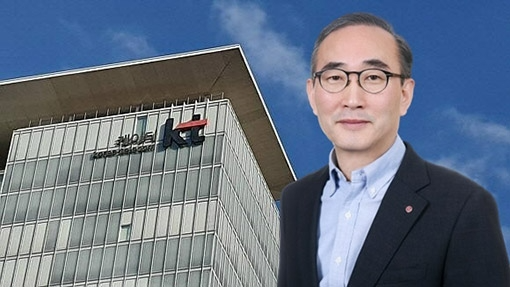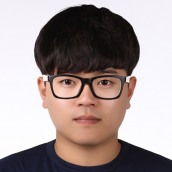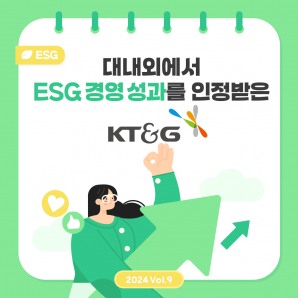
Kim Young-seop, CEO of KT / Photo=KT
Following his appointment, he was credited with stabilizing the prolonged management vacuum and laying the foundation for KT’s transition into an AICT (AI & ICT) company.
However, the process of normalizing operations was not without controversy. His recruitment of executives from LG CNS, his previous workplace, as well as former prosecutors, led to accusations of parachute appointments. Additionally, large-scale workforce restructuring sparked fierce opposition from the labor union.
Time is not on his side, either. His term ends in March next year. Within this remaining period, he must clearly demonstrate the outcomes of his AICT company strategy, which he has aggressively pursued.
The company plans to accelerate its transition to an AICT company by training its existing employees in AI expertise and recruiting experienced professionals in AI and cloud technologies.
With just one year left in his term, Kim appears determined to prove the results of his efforts in transforming KT.
During a town hall meeting last month, he stated, “Last year, KT focused on capabilities, workforce, and business innovation to become an AICT company. Through our partnership with MS, we have laid the foundation for the growth of the B2B AX business and are actively pursuing AI innovations across ICT, media, and network sectors.”
He added, “2025 will be the defining year for KT’s transformation into an AICT company. We aim to become the industry leader in AI and drive innovation across various sectors.”
Born in 1959, Kim Young-seop graduated from Korea University with a degree in Business Administration.
He began his career at Lucky-Goldstar Trading Company in 1984, marking the start of his 39-year tenure at LG Group, where he built a reputation as a restructuring expert. Between 2000 and 2006, he worked in LG’s Corporate Restructuring Headquarters, spearheading group-wide restructuring efforts and optimizing financial structures.
As CEO of LG CNS (2015–2022), he led the company’s transformation into a cloud services provider, significantly reducing its reliance on LG Group. Today, LG CNS has the lowest percentage of group-affiliated revenue among Korean SI (System Integration) firms.
Following stabilization, he swiftly initiated a business portfolio restructuring, cutting non-core businesses.
Last year, KT discontinued several unprofitable businesses, including the NFT platform "Mincl", the metaverse platforms "Meta Lounge" and "Genieverse", and the used phone buyback service "Green Phone."
The company also streamlined its corporate structure by liquidating its digital logistics subsidiary "RoLab" and its Vietnamese healthcare unit "KT Healthcare Vietnam." KT merged "KT NexR" and "KT Linkus" into the main company. Furthermore, it consolidated its media and content subsidiaries under KT Studio Genie to enhance operational efficiency.
In November last year, KT established two new infrastructure-focused subsidiaries, “KT Netcore” and “KT P&M,” as part of its organizational restructuring and workforce adjustments. The restructuring affected approximately 4,500 employees, with 2,800 opting for voluntary retirement and 1,700 transferring to the new subsidiaries.
This one-time restructuring cost KT approximately KRW 1 trillion.
As internal criticism of the “forced restructuring” grew, Kim issued a formal apology but reaffirmed that the restructuring was “a necessary step to improve KT’s corporate structure.”
Over the next five years, the two companies plan to collaborate on developing AI solutions tailored for the Korean market, advancing cloud services, enhancing AI R&D capabilities across South Korea’s technology ecosystem, and training tens of thousands of AI professionals in the country.
Last month, they held a B2B AX business strategy workshop, marking the official start of their full-scale cooperation.
However, KT’s partnership with MS sparked concerns internally and externally.
Under the agreement, KT will pay Microsoft KRW 32 billion over five years while integrating parts of its internal system with Microsoft’s cloud service “Azure.” This includes expanding AI-related services in public, financial, and education sectors.
Since KT already owns the cloud subsidiary 'KT Cloud,' the decision to expand its business systems by utilizing external cloud services raised concerns about potential conflicts between the parent company and its subsidiary, as well as the possibility of reducing its own cloud business.
These concerns grew among KT Cloud employees, prompting KT and KT Cloud executives to step in and reassure the workforce.
A securities analyst commented, “Kim Young-seop has driven significant changes at KT over the past two years, sparking both concerns and expectations. This year, KT must produce visible results from its AICT transformation efforts.”
Kim JaeHun (rlqm93@fntimes.com)

































![[DCM] SK엔무브, 배당 퍼주고 빚 돌려막기? 최대 3000억 회사채 발행](https://cfnimage.commutil.kr/phpwas/restmb_setimgmake.php?pp=006&w=69&h=45&m=5&simg=2025022017354706250141825007d12411124362.jpg&nmt=18)

![김종현 쿠콘 대표, 데이터 사업 집중 전략으로 순익 2배 '껑충' [2024 금융사 실적]](https://cfnimage.commutil.kr/phpwas/restmb_setimgmake.php?pp=006&w=69&h=45&m=5&simg=20250220100504085116a663fbf34175192139202.jpg&nmt=18)















![[카드뉴스] 국립생태원과 함께 환경보호 활동 강화하는 KT&G](https://cfnimage.commutil.kr/phpwas/restmb_setimgmake.php?pp=006&w=298&h=298&m=1&simg=202403221529138957c1c16452b0175114235199_0.png&nmt=18)
![[카드뉴스] 신생아 특례 대출 조건, 한도, 금리, 신청방법 등 총정리...연 1%대, 최대 5억](https://cfnimage.commutil.kr/phpwas/restmb_setimgmake.php?pp=006&w=298&h=298&m=1&simg=20240131105228940de68fcbb35175114235199_0.jpg&nmt=18)
![[카드뉴스] 어닝시즌은 ‘실적발표기간’으로](https://cfnimage.commutil.kr/phpwas/restmb_setimgmake.php?pp=006&w=298&h=298&m=1&simg=202311301105084674de68fcbb35175114235199_0.png&nmt=18)
![[신간] 지속 가능 경영, 보고와 검증](https://cfnimage.commutil.kr/phpwas/restmb_setimgmake.php?pp=006&w=81&h=123&m=5&simg=2025011710043006774f8caa4a5ce12411124362.jpg&nmt=18)
![[신간] 사모펀드 투자와 경영의 비밀](https://cfnimage.commutil.kr/phpwas/restmb_setimgmake.php?pp=006&w=81&h=123&m=5&simg=2024102809331308730f8caa4a5ce175114235199.jpg&nmt=18)
![[서평] 추세 매매의 대가들...추세추종 투자전략의 대가 14인 인터뷰](https://cfnimage.commutil.kr/phpwas/restmb_setimgmake.php?pp=006&w=81&h=123&m=5&simg=2023102410444004986c1c16452b0175114235199.jpg&nmt=18)

![[신간] 김국주 전 제주은행장, ‘나는 시간을 그린다 1·2’ 에세이 출간](https://cfnimage.commutil.kr/phpwas/restmb_setimgmake.php?pp=006&w=81&h=123&m=5&simg=2024111517430908074c1c16452b012411124362.jpg&nmt=18)

![[AD] 기아, 혁신적 콤팩트 SUV ‘시로스’ 세계 최초 공개](https://cfnimage.commutil.kr/phpwas/restmb_setimgmake.php?pp=006&w=89&h=45&m=1&simg=2024123113461807771f9c516e42f12411124362.jpg&nmt=18)
![[AD] 아이오닉5 '최고 고도차 주행 전기차' 기네스북 올랐다...압도적 전기차 입증](https://cfnimage.commutil.kr/phpwas/restmb_setimgmake.php?pp=006&w=89&h=45&m=1&simg=2024123113204707739f9c516e42f12411124362.jpg&nmt=18)





